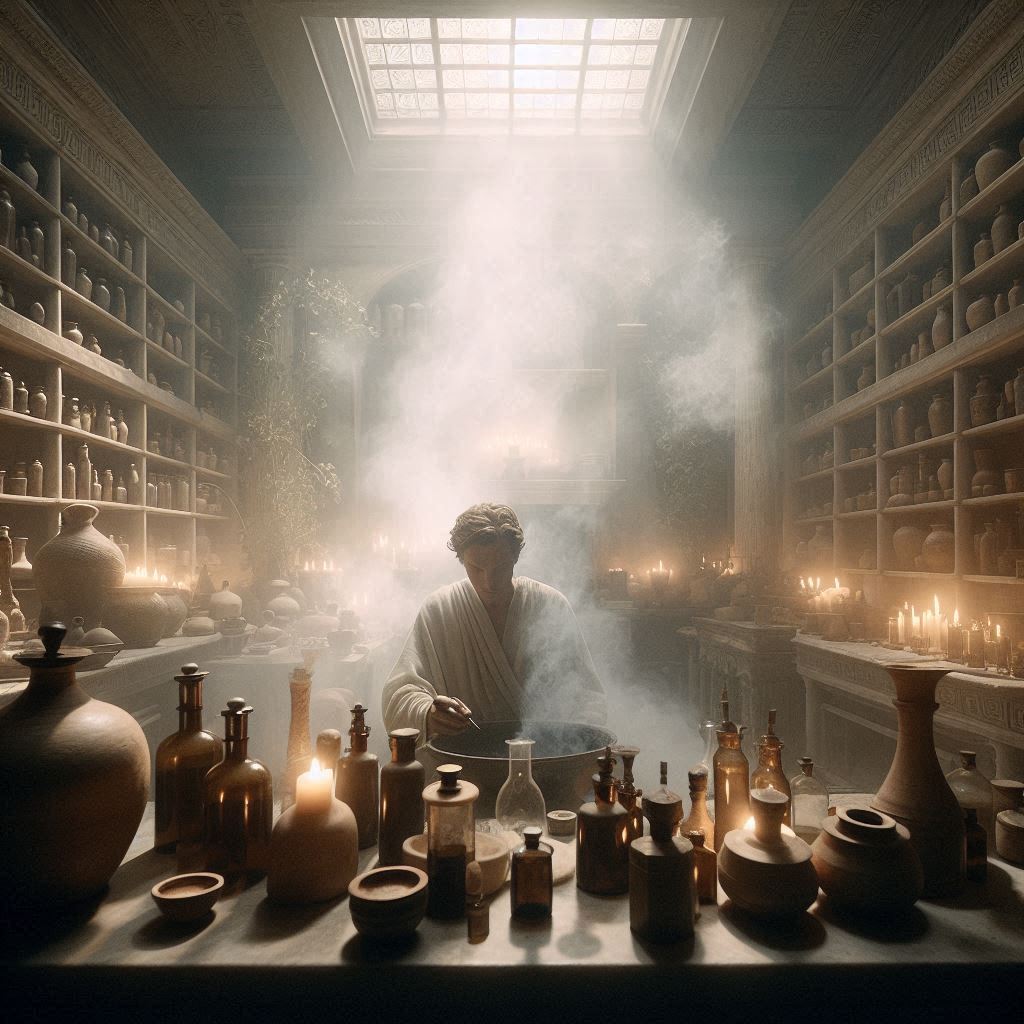
Aromatherapy has ancient roots that stretch back to the Greeks, Romans, and Egyptians. Each of these cultures contributed uniquely to the development of essential oil practices, shaping the foundations of modern aromatherapy. Discover how these ancient traditions have influenced contemporary wellness with House of Aja’s essential oil blends. Explore our range today and connect with the rich history of aromatherapy.
Ancient Greek Contributions to Aromatherapy
The ancient Greeks were pioneers in using essential oils for therapeutic and cosmetic purposes. They were among the first to document the benefits of aromatic plants in their medical texts. Hippocrates, the father of medicine, advocated for the use of essential oils for their healing properties. Essential oils like myrrh, rose, and thyme were used to treat a variety of ailments, from digestive issues to respiratory problems.
Greek philosophers and physicians recognized the connection between scents and emotional well-being. Diffusing essential oils was a common practice to create a calming atmosphere and support mental health.
House of Aja’s Greek Wellness Blend, featuring thyme, rose, and myrrh, pays tribute to these ancient practices, offering a blend that promotes relaxation and supports overall well-being.
Roman Innovations in Aromatherapy
The Romans further advanced the use of essential oils by incorporating them into daily life and public spaces. Roman baths were equipped with intricate systems for infusing aromatic oils into the water, creating an immersive sensory experience. Oils like lavender, cypress, and eucalyptus were used not only for their fragrance but also for their therapeutic benefits.
Roman innovations also included the use of essential oil blends in religious and ceremonial contexts. The use of frankincense and myrrh in rituals demonstrated the spiritual significance of aromatherapy in Roman culture.
House of Aja’s Roman Serenity Blend, which includes cypress, eucalyptus, and lavender, is inspired by these historical practices, providing a soothing aroma that enhances relaxation and emotional balance.
Egyptian Rituals and Aromatherapy
In ancient Egypt, essential oils were integral to both daily life and religious practices. The Egyptians used oils like frankincense and myrrh in embalming processes, believing these substances had divine properties. They also created complex essential oil blends for use in rituals, cosmetics, and medicine.
The Egyptians were skilled in the art of perfumery, crafting intricate blends that combined various aromatic substances. These blends were used to enhance spiritual practices and promote physical and emotional health.
House of Aja’s Egyptian Revival Blend, featuring frankincense and myrrh, is a modern homage to these ancient practices, designed to create a serene and spiritually uplifting environment.
Modern Practices Inspired by Ancient Traditions
The principles and practices of ancient aromatherapy continue to influence modern wellness routines. Today’s aromatherapy oils diffusers are designed to bring the benefits of essential oils into contemporary life, combining ancient wisdom with modern technology. The therapeutic use of essential oils is now supported by scientific research, enhancing our understanding of their benefits and applications.
House of Aja’s essential oil blends reflect this rich history while incorporating modern knowledge to provide effective solutions for relaxation, focus, and emotional balance. Our blends are crafted to offer the same benefits sought by ancient civilizations, adapted for today’s wellness needs.
Experience the Legacy of Aromatherapy with House of Aja
At House of Aja, we honor the legacy of ancient aromatherapy practices by offering high-quality, organic essential oil blends that support your well-being. Our products are designed to help you connect with the ancient traditions of the Greeks, Romans, and Egyptians while benefiting from modern advancements.
Embrace the timeless benefits of aromatherapy with House of Aja’s premium blends. Discover our collection today and experience the rich heritage of essential oil practices.

